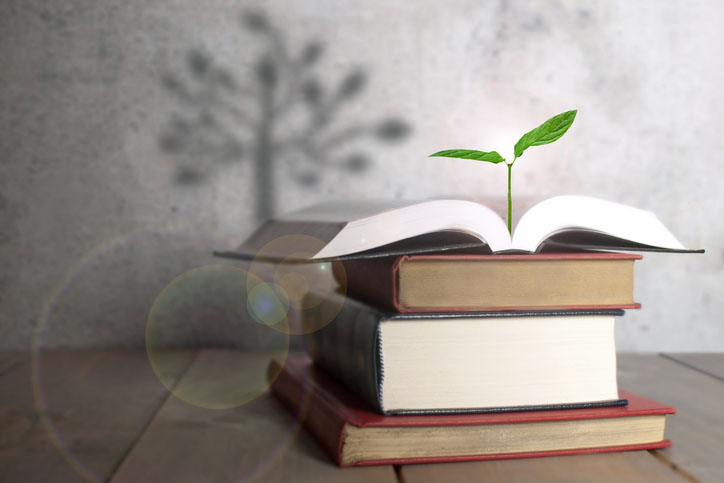It is 38 degrees on a Monday night. Our family wakes up in a tent cabin in the high country of Tuolumne Meadows, ready for the beauty, and warmth, of the Yosemite Valley, where we have reservations Tuesday, Wednesday and Thursday night. But a wildfire has different ideas.
The drive is normally a one-hour trip on a winding road through the Sierra Nevada Mountains, but a (not so) controlled burn closes the road. We spend Tuesday on a seven-hour (!!) detour.
“Are you bummed?” Jen asks me.
The truth is, I could be. I have every right to be disappointed at all the things we are not doing with those seven hours. We are not hiking a beautiful trail. We are not photographing the spectacular Yosemite scenery. We are not having the vacation we planned. But I try not to be bummed. I try to be grateful. I am driving through the mountains on vacation with my wife and our three boys! Where else would I rather be? Even if I prefer to be elsewhere, what good will it do me?
Eastern traditions teach that the root of suffering is a desire for the world to be some other way than the way that it is. Jewish tradition teaches a similar idea. “Ben Zoma says: Who is rich? The one who is happy with his portion” (Pirkei Avot 4:1). So many of us are rich, but we suffer because we are unhappy with our portion. We spend our lives feeling regret over choices we made, or over the way things happened to us. We are consumed with anxiety at an unknown future. Regret at the past and anxiety at the future rob us of the present. We are asleep to the world as it is.
Maimonides teaches that when we hear the shofar, we should hear it saying, “Awake, you sleepers from your slumber. Rouse yourselves from your lethargy. Search your deeds and return in teshuvah and remember your Creator” (Laws of Repentance 3:4). When we are in synagogue listening to the shofar, we are, of course, not literally asleep. So from what sleep must we awake? We are asleep to our lives as they actually are. We drive through mountains wishing for a valley. We are surrounded by a noisy family wishing for quiet and serenity. We are absent from the present.
The Talmud teaches, “Three books are opened on Rosh Hashanah, one for the completely evil, one for the completely righteous and one for everyone in between. The completely righteous are written and sealed in the Book of Life immediately. The completely evil are written and sealed in the Book of Death immediately. Those in between stand suspended from Rosh Hashanah until Yom Kippur. If they merit it, they are written for life. If they do not merit it, they are written for death…. Four things will cause God to tear up [ma’akirin] the decree of judgment which has been issued against a person: acts of righteousness, fervent prayer, changing one’s name and changing one’s behavior.” The talmudic text forms the source of the Une Tane Tokef prayer: “On Rosh Hashanah, it is written, and on Yom Kippur it is sealed, who will live and who will die … but repentance, prayer and righteous deeds can transform [ma’arivin] the evil of the decree.”
In his book on the High Holy Days, “This Is Real and You Are Completely Unprepared,” Rabbi Alan Lew (z”l) writes how the Talmud claims our behavior will actually change the decree, but the liturgy makes a different argument: “[P]rayer, righteousness and teshuvah will not change what happens to us; rather they will change us. We will understand what happens differently. Spiritual practice won’t change what happens. Rather, it will help us to experience what happens not as evil, but simply as what happens. Spiritual practice will help us to understand that everything that happens, even the decree of death, flows from God.”
From the first of Elul through the end of Sukkot, we say Psalm 27 each morning and evening. It reads, “God is my light, and my salvation.” The midrash teaches, “God is my light.” When? On Rosh Hashanah. The New Year is a time of light, God’s light. When we see God’s light illuminate our lives, everything takes on a different hue. Every moment is pregnant with possibility. No moment is a mistake.
A fire burns. A road closes. Our family must (or is given the opportunity to) spend seven more hours in our minivan driving through the mountains to Yosemite Valley another way. Should those things have happened? I am not sure what such a question means. The shofar challenges me: Will I spend those hours in the car asleep, waiting for them to be over so that something “better” can happen? Or will I awake to the journey we are given to travel? Ask yourself as the shofar sounds, “Am I awake to my life as it is? Can I be present to the road I have been given to travel, and even rejoice at my portion?” l
Rabbi Daniel Greyber is executive director of Camp Ramah in California (ramah.org) and the Zimmer Conference Center of American Jewish University.

































 More news and opinions than at a Shabbat dinner, right in your inbox.
More news and opinions than at a Shabbat dinner, right in your inbox.